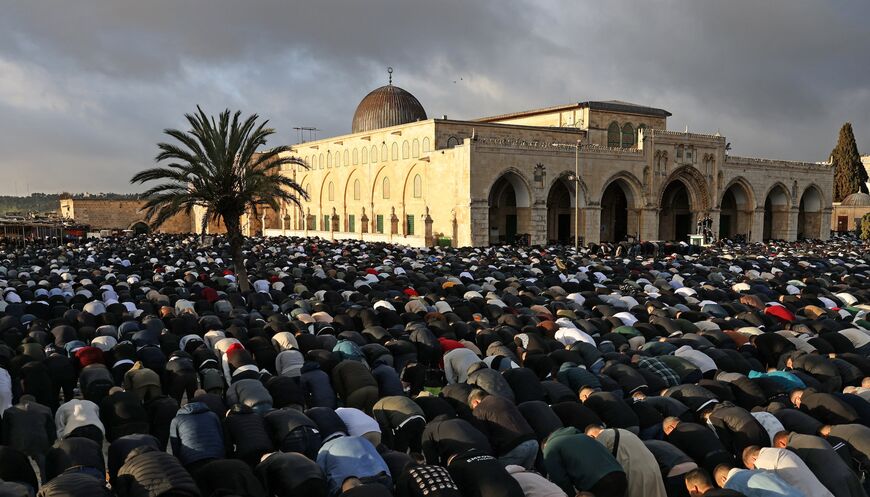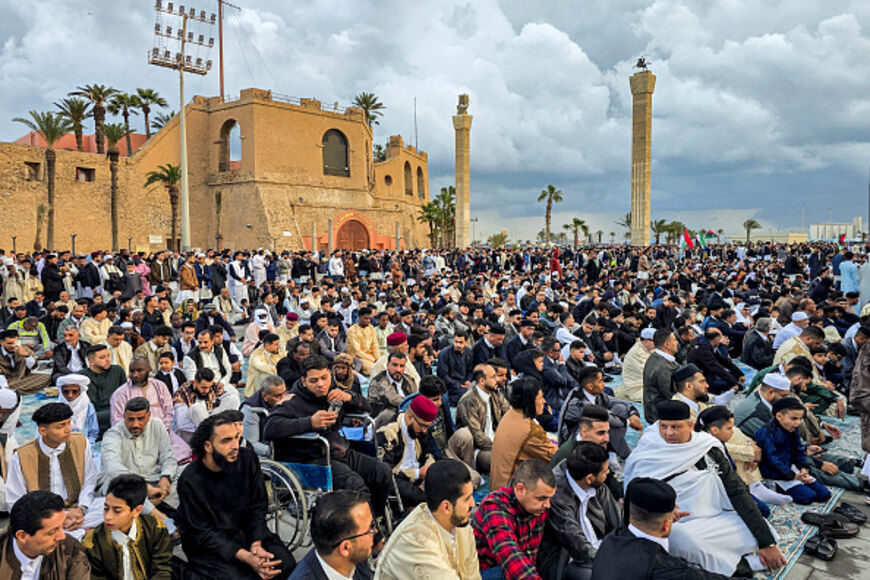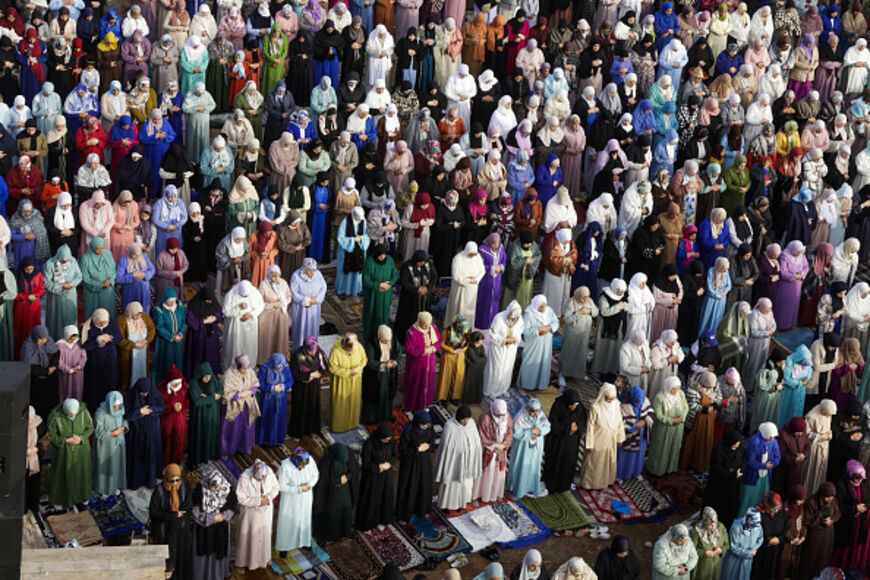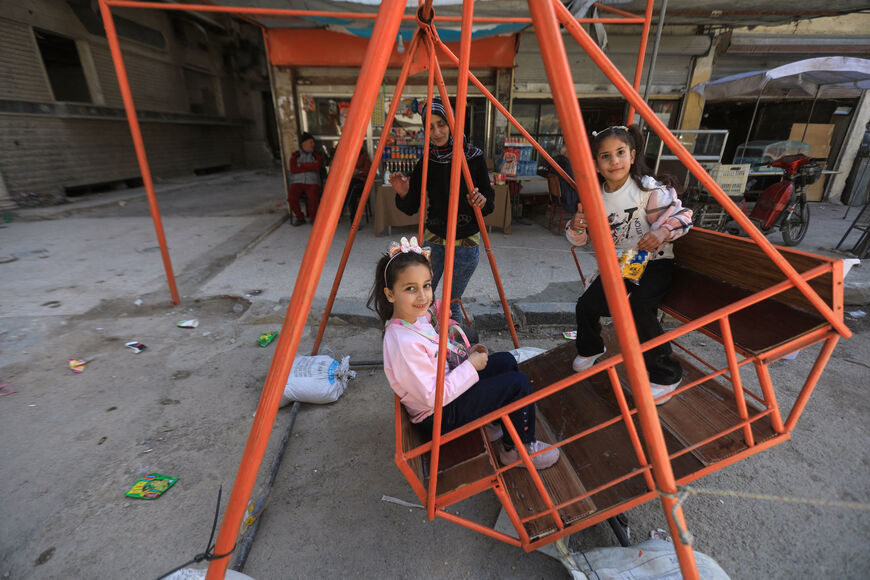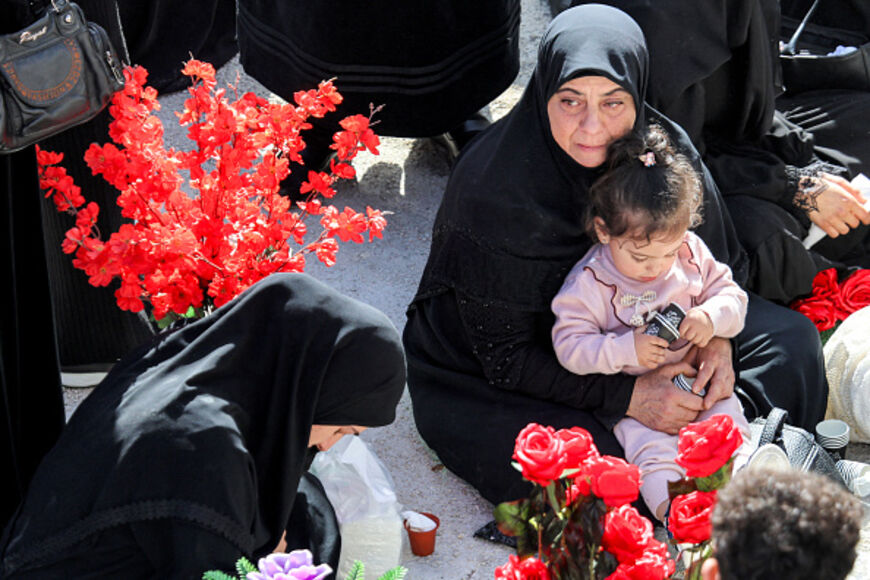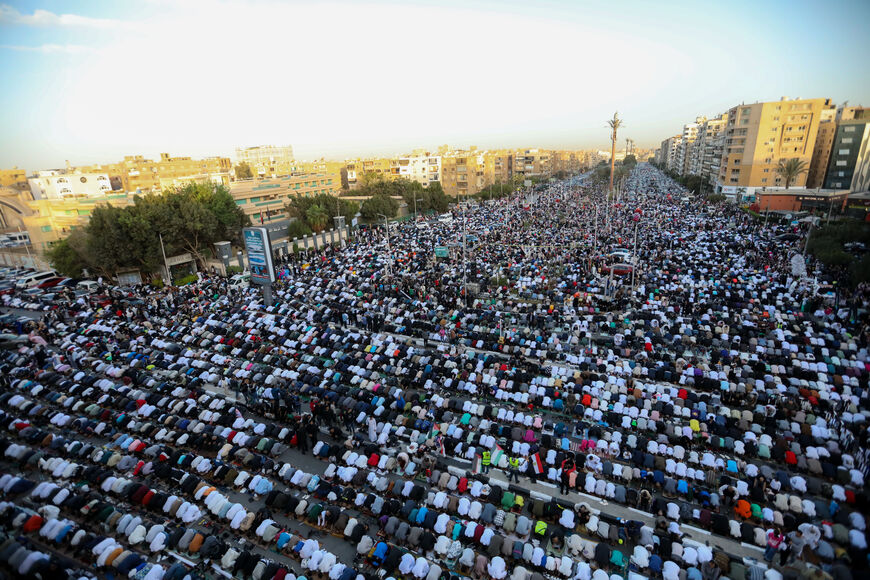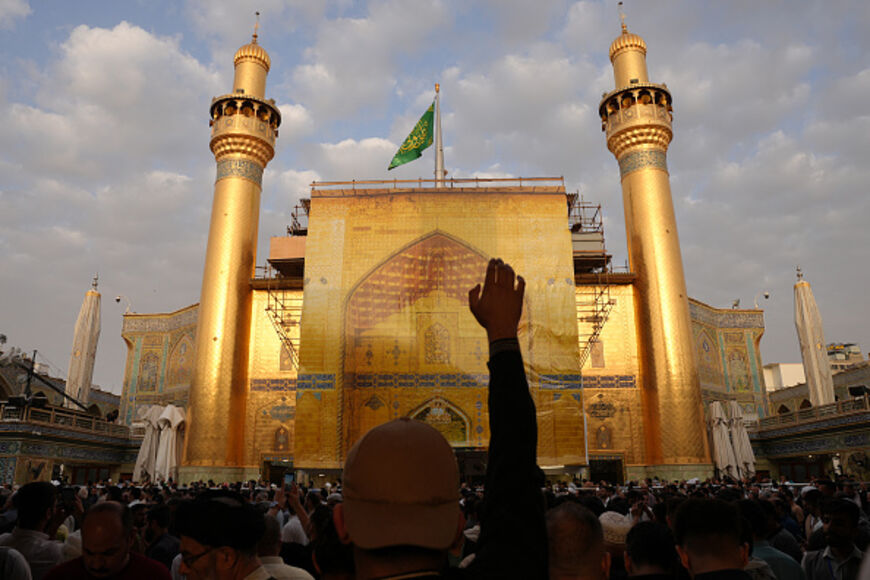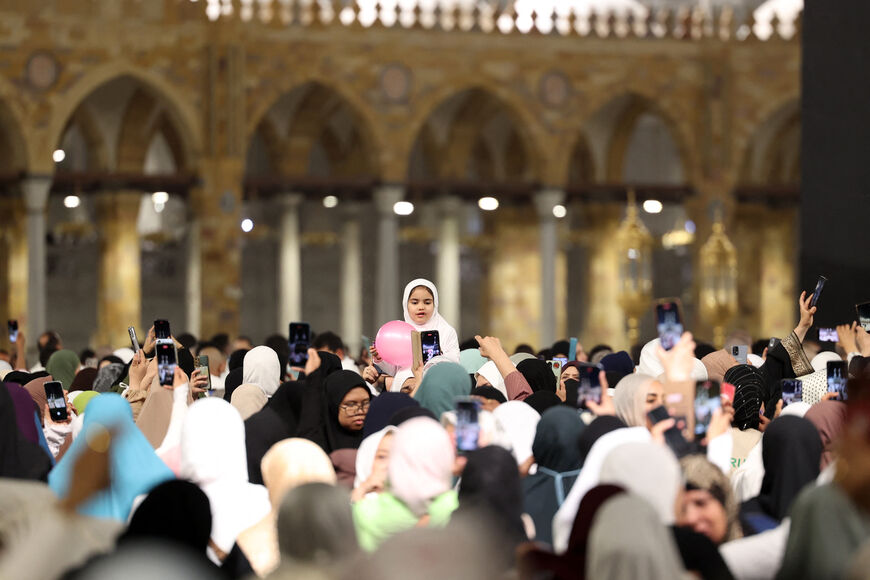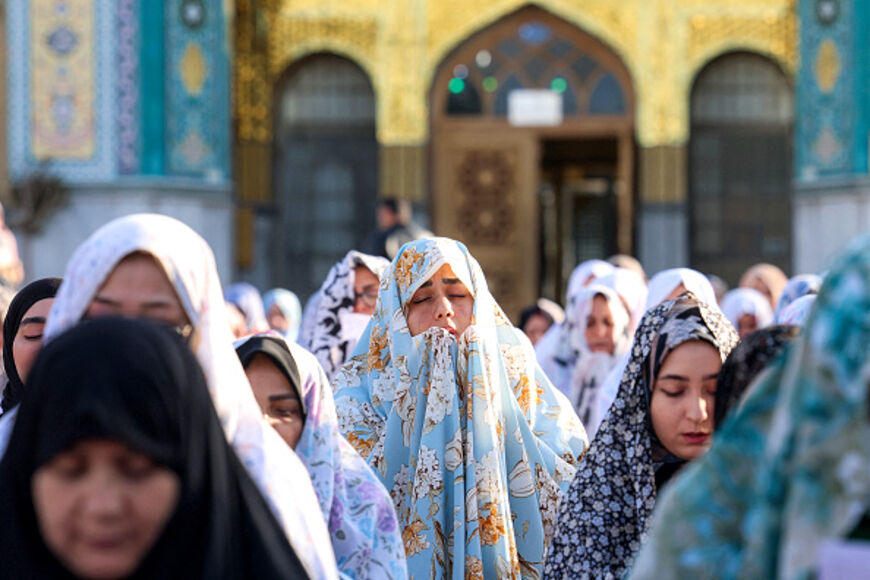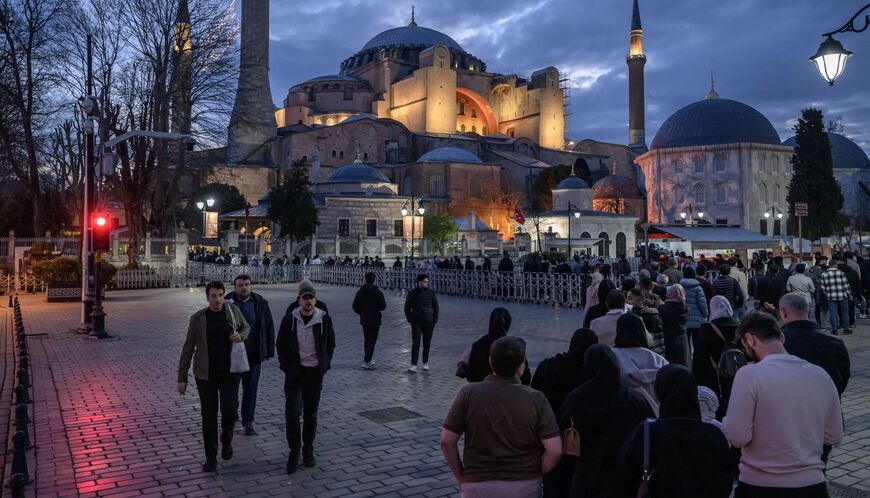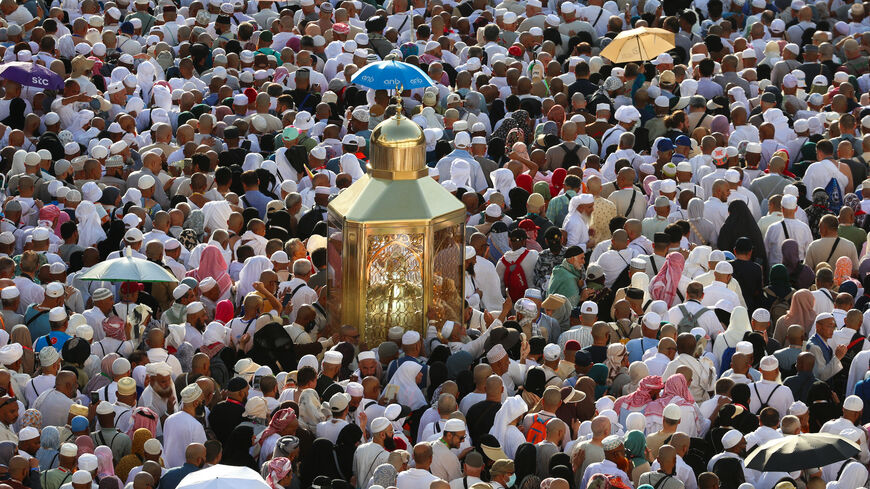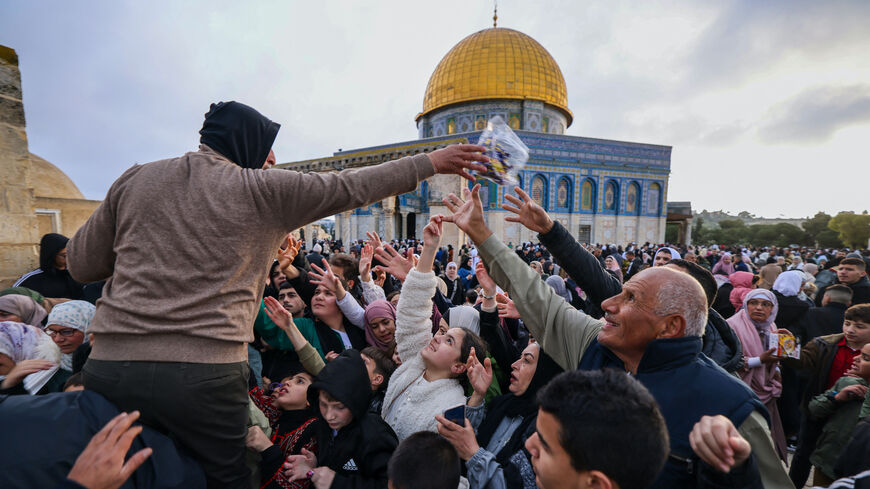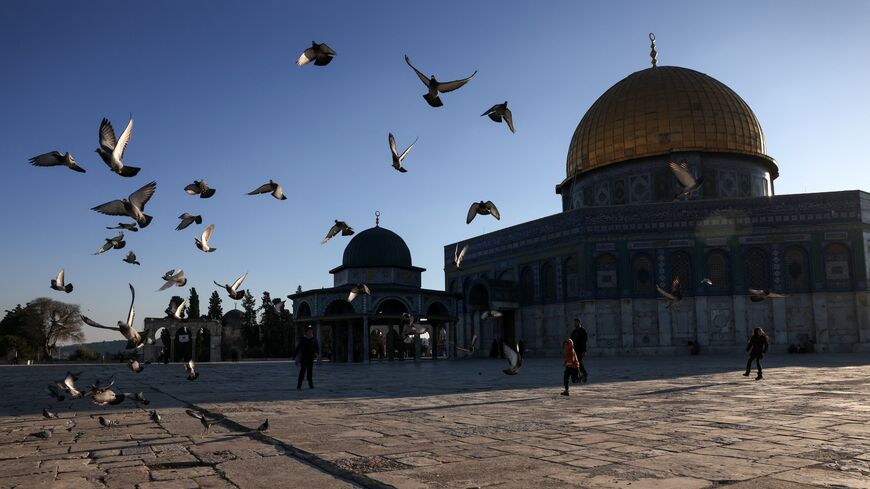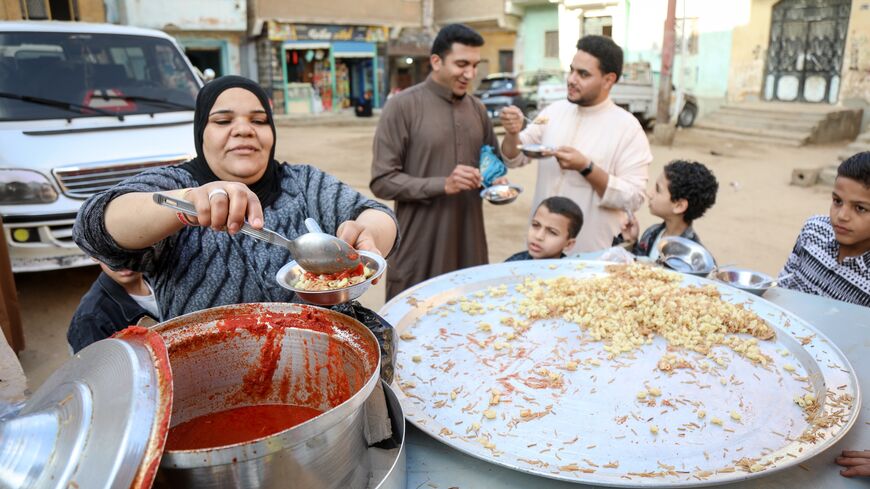In photos: Muslims celebrate Eid el-Fitr across the Middle East
Muslims in the Middle East came together on Sunday and Monday to celebrate the end of Ramadan.
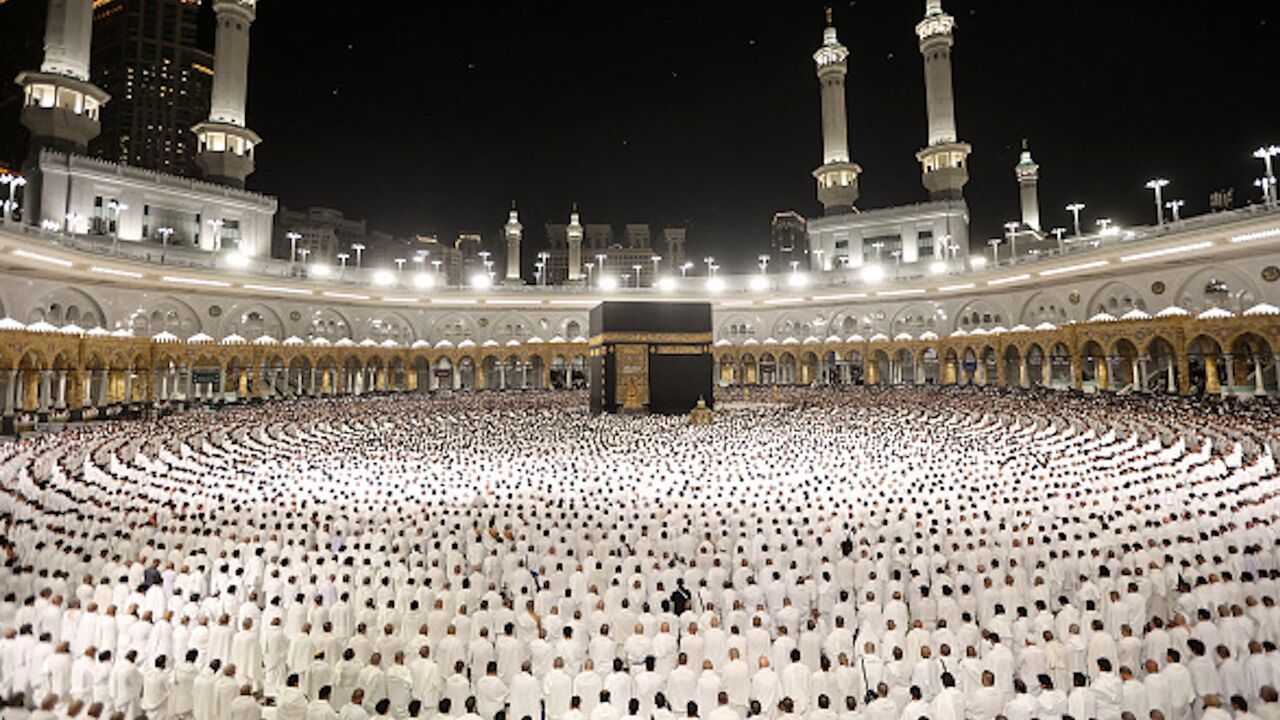
Eid celebrations marking the end of the Muslim holy month of Ramadan kicked off across the Middle East on Sunday evening and continued into Monday.
Eid al-Fitr, the festival that marks the end of a month of fasting, is typically celebrated over two to three days. It is a joyous occasion for Muslims, featuring special prayers, family gatherings and outings, and other festive activities.
Islam follows a lunar calendar; thus, Ramadan and Eid vary each year. The confirmation of Eid rests on the sighting of the crescent moon. In Egypt, Syria, Iraq, Libya, Jordan, Algeria, Morocco, Oman and Tunisia, Eid was announced as starting on Monday.
Saudi Arabia, Qatar, the United Arab Emirates, Kuwait, Bahrain, Yemen, Palestine, Sudan, Turkey and Lebanon celebrated the first day of Eid al-Fitr on Sunday.
North Africa
Cairo came to a near halt on Monday as Egyptians gathered to perform prayers. Following the prayers, thousands in Cairo and other Egyptian governorates held demonstrations against the displacement of Palestinians in Gaza.
Libya’s Prime Minister Abdul Hamid Dbeibah and other top government officials and public figures joined thousands of Libyans for an Eid sermon in Martyrs’ Square in Tripoli.
Moroccans flocked on Monday to mosques in traditional jalabiyas, carrying traditional prayer rugs. Food, and particularly desserts, play a key role in Moroccan celebrations of Eid, including kaab el ghazal, mahancha, fekkas and ghriba.
Syria, Lebanon, Gaza, Egypt, the West Bank and Iraq
Across Syria’s governorates, Syrians gathered en masse to perform Eid prayers — the first since the ousting of former President Bashar al-Assad. One of the largest gatherings in the country took place in Damascus near the Tomb of the Unknown Soldier, a memorial dedicated to Syrian soldiers that was reportedly subject to strict visitation restrictions under Assad.
Syria’s new president, Ahmed al-Sharaa, performed Eid prayers in the People’s Palace in Damascus alongside a number of his cabinet members. This is Syria's first Eid in five decades without the Assad dynasty in power.
Lebanon, another country currently in transition, saw hundreds of citizens in the south visit graves of family members and friends killed in the recent conflict between Hezbollah and Israel. Visiting grave sites is a common practice during Eid.
Meanwhile, Lebanon’s Prime Minister Nawaf Salam performed Eid prayers alongside Saudi Arabia’s Crown Prince at the Al-Salam Royal Palace in Jeddah.
Despite renewed Israeli operations and quickly dwindling food and medical supplies in Gaza, Palestinians celebrated Eid. Thousands of displaced Palestinians performed their Eid prayers in the rubble and in refugee camps.
In the West Bank, some 120,000 Palestinians gathered at the Al-Aqsa Mosque on Sunday morning to perform dawn prayers.
Iraq saw controversy over the announcement of Eid this year. Typically, Iraq’s Sunni Endowment authorities announce the start of Eid in accordance with Saudi Arabia and other Arab countries. Just hours after the Sunni Endowment announced the start of the holiday to be March 30, the authorities reversed the announcement and pushed back the start date to March 31 — the same date used by the Shiite Endowment, which follows Iran’s calendar.
The move sparked controversy, with many accusing Iranian-backed Shiite government officials of pressuring Sunni authorities to change the date.
The Gulf
Saudi Arabia — home to two of the holiest sites in Islam, the Kaaba in Mecca and the Prophet’s Mosque in Medina — kicked off Eid on Sunday alongside the UAE and Qatar.
In the UAE, authorities announced a four-day break for private sector employees to begin on Sunday and continue through Wednesday.
Iran
In Tehran, Iranians gathered at the Imam Khomeini Mosalla Grand Prayer Grounds on Monday morning to perform Eid prayers, led by Iran’s Supreme Leader Ayatollah Ali Khamenei.
Turkey
Eid came at a tense time for Turkey, as the country is embroiled in political turmoil and protests over Turkish President Recep Tayyip Erdogan’s jailing of his key political opponent.
In Eid messages, government officials emphasized Turkish unity and regional solidarity.
